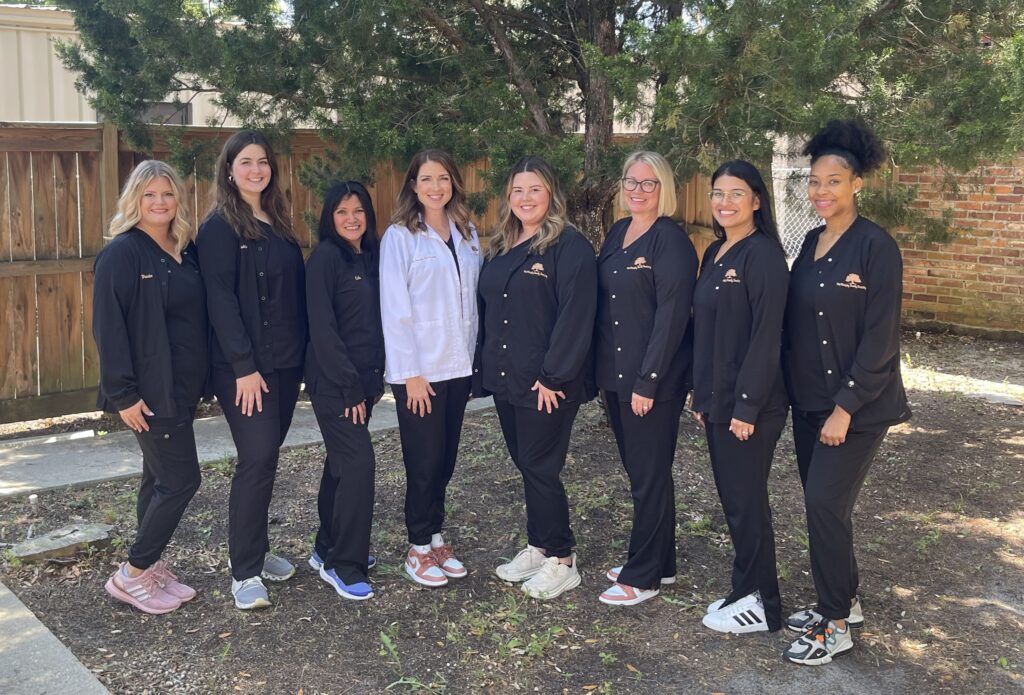A natural fact of life is that everything is always changing and evolving. Technology, medicine, consumer expectations, etc., all of which are things that have grown rapidly over the last decade alone. Nowhere is this evolution truer than in the dental field. Gone are the days where dentists felt that their only course of action was to react to problems as they were presented to them. We’ve also said goodbye to a world in which every procedure was an invasive and uncomfortable one. If you are a person who avoids making a dental appointment every six months (or longer) to see your dentist, you’re not alone! One of the most common reasons for this is fear.
While it is true that we are making advancements in leaps and bounds, the scary reality is: we ensure progress because we have to. Yes, we are evolving and changing and that is good, but diseases are evolving as well. Arguably one of the most important reasons to maintain routine visits to your dentist is to allow for the early detection and prevention of oral problems. Preventative care is always the best care.
The Importance of Prevention
If you were to take a random survey on the street about why people put off going to the dentist, most will attribute their procrastination to a previous bad experience or the story of a bad experience from a loved one. That fear causes people to forgo routine dental care in an age where preventative measures are not only highly effective but are far less invasive and almost completely free of any discomfort. Additionally, thanks to our ever-evolving technology, dentists have been able to better determine the cause of many dental issues and the primary focus was shifted from damage control to prevention because of those discoveries.
We are beyond the days where we visited the dentist because of a sore tooth or because of swollen gums, in the hopes that dentists could fix those problems. We now have the power to stop diseases like gingivitis and dental issues such as cavities in their tracks before they even become seriously concerning or before they cause extensive or even permanent damage. Why not seize the opportunity to save ourselves time, money, and unnecessary discomfort when prevention through routine dental care is so much easier and so much more cost-effective?
Dental Visits Accomplish So Much for Your Overall Health
What you may not know is that cavities and gum disease are not the only conditions that your dentist is looking for during your dental exam. One of the many reasons to maintain consistent visits to your dentist for checkups is for oral cancer screening. Once upon a time, oral cancer was said to be something that affected older people who had smoked for years or who were heavy drinkers. Chewing tobacco was also linked to causing cancer of the mouth and gums.
Today, oral cancer has become far less “choosey” about the people it takes up residence in. Younger people with absolutely no history of tobacco use or heavy drinking have been diagnosed with the disease. Without a common habit or substance to link these demographics together, it is almost impossible to tell who is actually at risk for contracting oral cancer. This doesn’t mean that everyone is at risk, by any means. What it does mean is that everyone should see their oral physician routinely to make sure that there are no warning signs and, if there are, that they are caught early and treated right away.
Dental Care is Care for You
As incredible as it sounds, preventative oral medicine really DOES work and could even save your life, not to mention your teeth. Contrary to previous, popular belief, your dentist is not in the business of making money with unnecessary, extensive procedures or lengthy and uncomfortable surgeries. A regular checkup will likely consist mostly of the standard cleaning, and then a brief discussion about your oral healthcare routine, instruction on proper brushing and flossing techniques, and even discussion about how diet can help improve the overall health and wellness of your teeth. In the event that an issue is uncovered, the process is explained and then executed in a manner which is as minimally invasive as possible, all so that you can get back to normal quickly and with very little discomfort.
If a bad experience or pre-conceived notion is what’s keeping you from making an appointment to see your dentist, don’t let it upstage your oral health any longer! Preventative dental care has become the cutting edge to oral hygiene. Let your dentist help you achieve your best smile and a good deal of longevity for your teeth with a quick, thirty-minute appointment every six months (or as often as recommended by your dental practitioner), and give yourself the peace of mind of knowing that your oral health has never been better.











